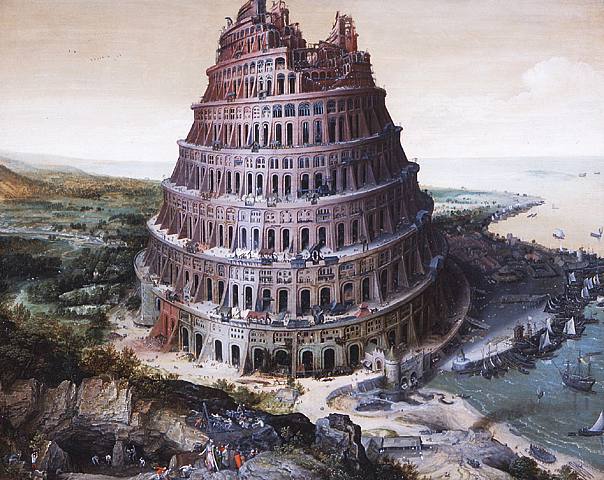 Genesis 11:1-9
Genesis 11:1-9In baseball, Ted Williams is considered to be one of the greatest hitters, if not the greatest major league hitter of all time. His lifetime batting average of .344 is still the highest of any player. He hit 521 home runs over the course of his nineteen year career with the Boston Red Sox. In 1941 his season batting average was .406 and remains the only player to hit .400 or more since that time. (Baseball-Reference.com)
If there was one thing Williams obsessed over during his career it was that he wanted and worked to be the greatest hitter of all-time. He did not want to be good or better; he wanted to be the best. Those who knew Ted confirmed that was his singular goal in his life. He ate, drank, slept, thought, and worked to be the greatest. When it came to hitting a baseball, Ted Williams did not want to be ordinary.
How true it is that we human beings dream of being more than ordinary. Children and young people dream of being a great celebrity or musician or doctor or something else that allows them to attain a high level of notoriety. We don't really want to settle in to the routine, to become like everyone else. We want to experience and to be especially recognized as extraordinary. We fear being ordinary. In the words of Thoreau, we fear leading lives of quiet desperation.
In the first nine verses of Genesis 11, the people living on a flat piece of real estate in the land of Shinar fear being ordinary.
And they said to one another, "Come, let us make bricks, and burn them thoroughly." And they had brick for stone, and bitumen for mortar. Then they said, "Come, let us build ourselves a city, and a tower with its top in the heavens, and let us make a name for ourselves; otherwise we shall be scattered abroad upon the face of the whole earth."They want to make a name for themselves. They want to control their own destinies. They don't want to be ordinary. In the heart of the city, they propose to build a tower, a ziggurat that reaches to the top of the heavens-- a tower normally designed as a place for the gods to descend to earth. These towers contained a room at the top for the deity to rest and be refreshed after her or his long trip from heaven before descending onto Terran soil. But the purpose for building this tower appears not to be for a divine welcome, but as a vehicle for a heavenly takeover. Their security, their notoriety can tolerate no rivals, no threats-- including heavenly ones. There is strength in numbers and here is a common project that will secure a bright future. The gods who named them and gave them their purpose must be defeated if the people are to name themselves, if the people are to be more than ordinary.
But the one true God of heaven and earth, the God who does not need to take a break in a heavenward hotel, looks down at their project and sees the threat; no, it's not a threat to the God who monitors their work. They are a threat to themselves. Ever since receiving the knowledge of good and evil from that incident in the Garden of Eden, human beings have seemed to use their knowledge more for the latter than the former. Now, their common project motivated by their own self-interest will lead to more evil than good. Not even the judgment of the flood could teach them to temper their selfish behavior. So, the one true God who names all things, foils their plans for fame and notoriety. Their purpose is to be God-imagers in the world, not gods in their own image.
There is a narrative thread in the Bible running from Genesis to Revelation that reminds us of two things: first God has made us in his image; and second, we want to make God in our image. God insists that he will name us and choose our destinies, but we insist in naming ourselves and choosing the future we desire. And no matter how many times and in how many different ways we try to name ourselves, to live life our own way, to be more than ordinary, we find that the idolatrous human projects, of which Genesis 11 is a type, will fail; for in the end God will name us for we belong to him. If we are to be extraordinary, it is only as we fulfill our purpose as God-imagers in this world.
In an world that does not know God, living as those that reflect his image is an extraordinary way to live. Every other way is simply ordinary.
No comments:
Post a Comment